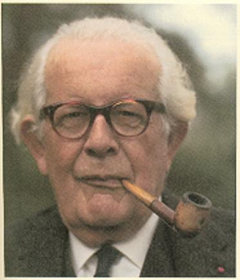Is it possible that "deep" concepts can be more accessible than "shallow" ones? Should we teach kids advanced concepts before basic ones?

It sounds weird. How can you understand calculus before arithmetic? Complex grammar before basic vocabulary? Yet there's evidence that this might be exactly how our minds naturally work.
When a toddler explores a donut, they immediately grasp something about topology - a branch of mathematics usually taught in college. They understand it has a hole, that it can be distorted into different shapes while remaining essentially the same thing. No numbers required. Their minds jump straight to an "advanced" concept before learning the "basics" of counting.
This pattern appears is more places
Children use complex grammar correctly before they can explain what a verb is. Their minds grasp advanced language patterns before basic grammar rules.
They understand advanced physics concepts through play - momentum, acceleration, center of gravity - long before they can handle "simpler" physics equations.
They create sophisticated rhythms and melodies before learning "basic" music notation.
They intuitively grasp loops and conditional logic in games before learning "basic" programming syntax.
What if this isn't just coincidence? What if our minds are actually wired to understand certain "advanced" concepts before "basic" ones?
Piaget and Montessori glimpsed this in their research. They saw that children naturally grasp sophisticated concepts through direct experience, long before they can handle supposedly simpler abstractions.
If true, this suggests something potentially big: Maybe our entire concept of "basic" vs "advanced" is backwards. Maybe what we consider advanced (topology, complex grammar patterns, physical laws) are actually more fundamental to how our minds work than what we consider basic (counting, grammar rules, equations). Maybe someone long ago laid down the order in which we teach things and we have never questioned it.
Imagine rebuilding education around this idea (if it is correct). What if we taught topology before arithmetic? Pattern-based language before grammar rules? Physical intuition before equations? What if the "hard" concepts are actually the easy ones - if we teach them at the right time, in the right way.